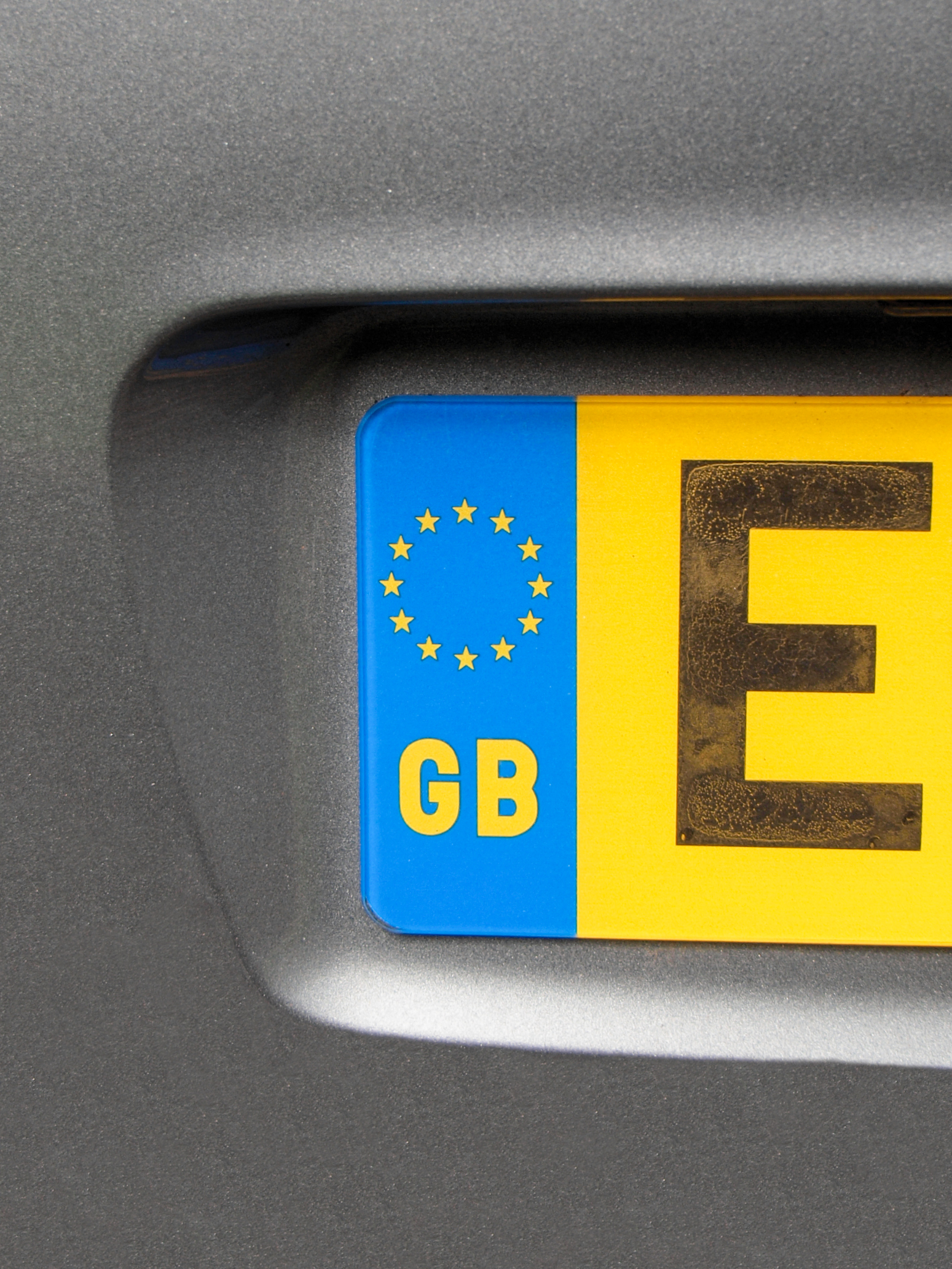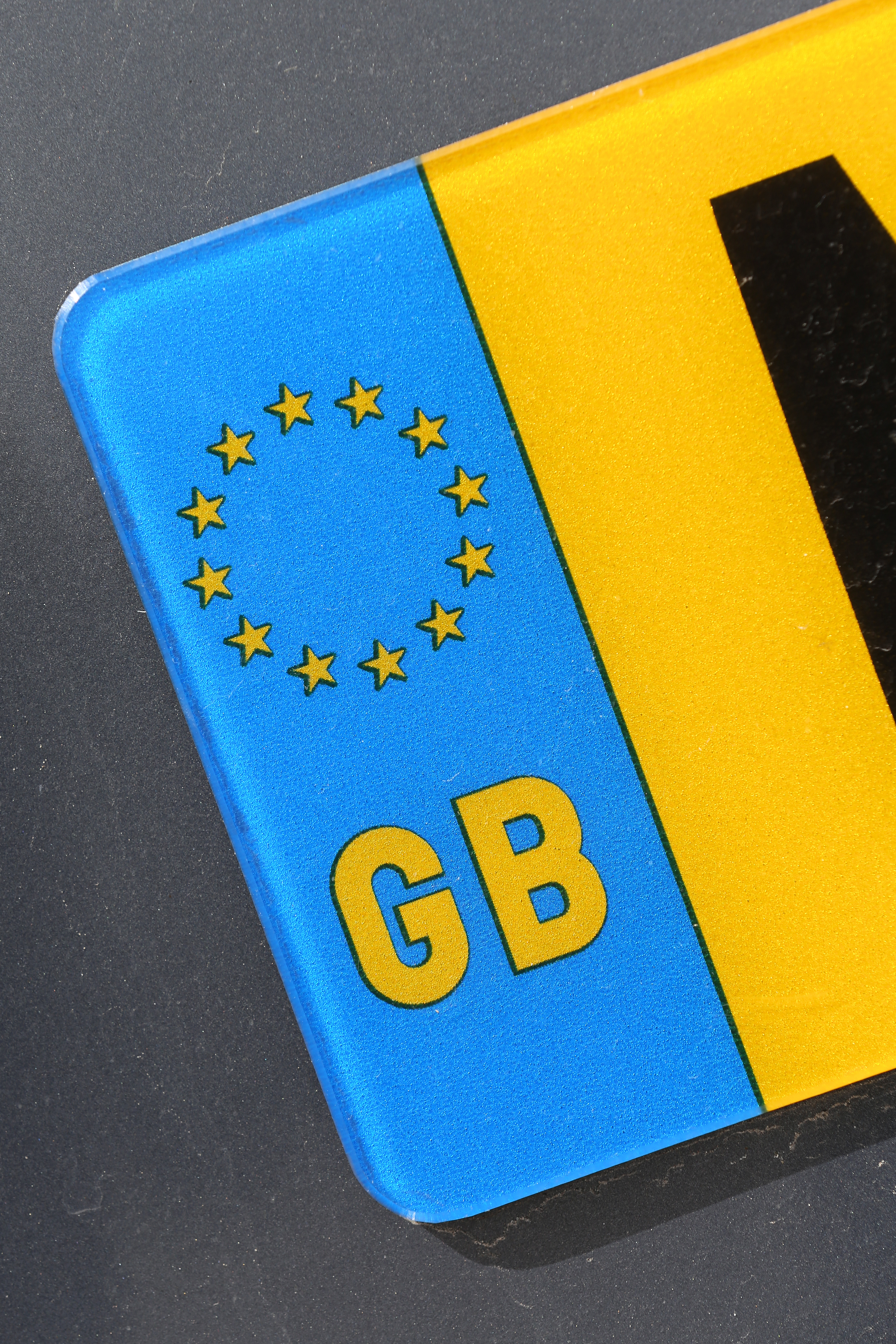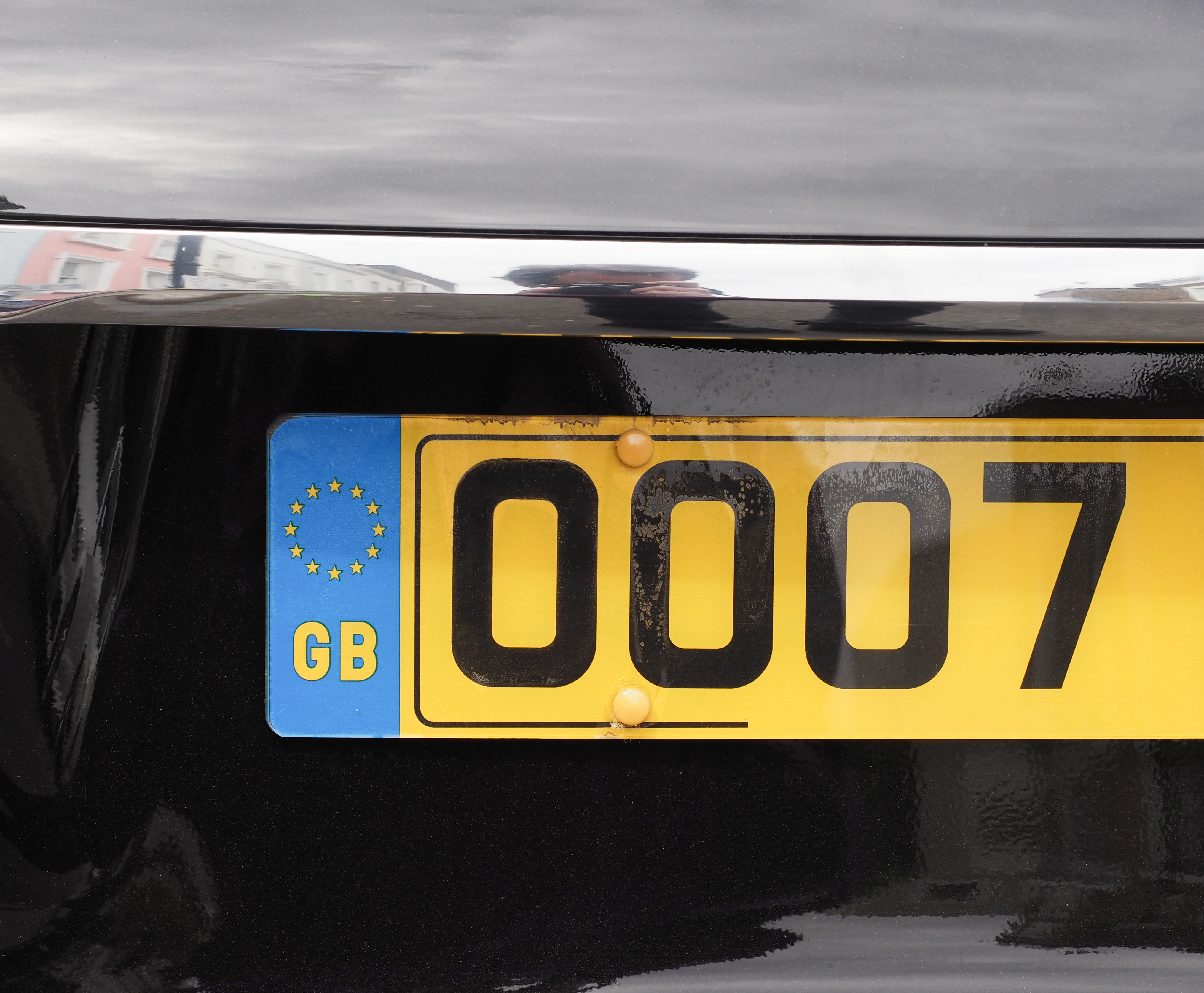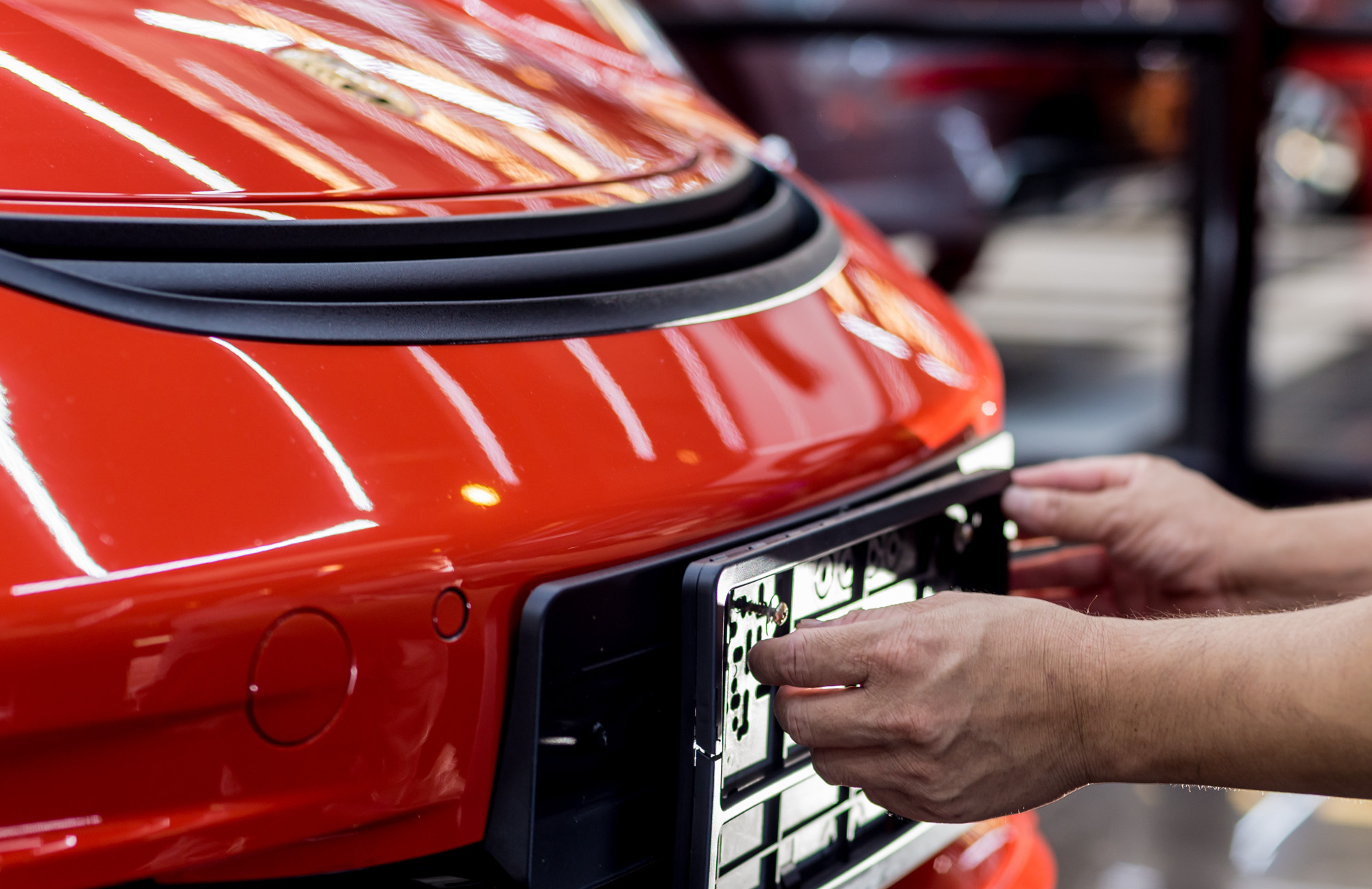Owning private registration plates can be a status symbol, but what happens when you no longer have a car to attach them to? You might assume you need a vehicle to keep your plates, but UK private plate regulations tell a different story. This guide unravels the mystery of keeping private plates without a car, showing you exactly how retention of private plates works. Whether you're a car enthusiast or just curious, you'll soon understand the ins and outs of holding onto your prized plate. For more information on personalised vehicle registration numbers, you can visit the official UK government website.
Understanding Private Registration Plates

Private registration plates, also known as personalised number plates, are a unique way to customise your vehicle. This section will explore what private plates are, why they're popular among car enthusiasts, and their potential as an investment.
What Are Private Plates?
Private plates are personalised vehicle registration numbers that differ from standard issue plates. They often feature a combination of letters and numbers that spell out names, words, or significant dates.
These plates are issued by the Driver and Vehicle Licensing Agency (DVLA) and can be transferred between vehicles, subject to certain rules and regulations. Private plates can make your car stand out and add a personal touch to your vehicle.
Many people choose private plates to display their initials, business names, or simply to create a unique identifier for their car. Right Reg offers a wide selection of private plates for those interested in personalising their vehicles.
Popularity Among Car Enthusiasts
Car enthusiasts often view private plates as the perfect finishing touch for their prized vehicles. These plates can reflect the owner's personality or the car's characteristics.
Some enthusiasts collect rare or vintage number plates, while others use them to complement classic cars. The appeal lies in the ability to create a unique identity for a vehicle, setting it apart from others on the road.
Private plates can also be a conversation starter at car meets and shows, adding an extra layer of interest to a vehicle's presentation. For many, it's a way to express their passion for cars and make their vehicle truly their own.
The Investment Angle
Beyond personalisation, private plates can be seen as a potential investment. Some rare or desirable combinations can appreciate in value over time.
Investing in private plates requires research and an understanding of the market. Short, simple combinations or plates that spell out popular names or words often hold their value well.
However, like any investment, there's no guarantee of returns. It's important to buy plates you genuinely like, rather than solely for potential profit. If you're considering private plates as an investment, it's wise to seek advice from experts in the field.
Keeping Private Plates Without a Car
Many people wonder if it's possible to keep their cherished private plates when they don't have a vehicle. The good news is, you can retain your plates even without owning a car. This section explains how retention works and the benefits it offers.
Retention of Private Plates
Retention is the process of keeping a private plate without assigning it to a vehicle. This option is perfect for those who want to hold onto their plates between cars or as an investment.
When you retain a plate, it's removed from your vehicle and held on a retention certificate. This certificate proves your ownership of the plate and allows you to keep it for future use.
The retention period lasts for 10 years and can be renewed. During this time, you can choose to assign the plate to a new vehicle or continue holding it in retention. Car.co.uk provides more information on buying and retaining number plates.
How to Keep Private Plates
To keep your private plates without a car, you'll need to follow a specific process:
- Apply for a retention certificate through the DVLA.
- Pay the retention fee (currently £80).
- Remove the plates from your vehicle (if they're currently assigned).
- Store your retention certificate safely.
Once you have your retention certificate, you can keep your plates for up to 10 years. Remember to renew your retention before it expires to avoid losing your rights to the plate.
It's important to note that you can only retain a plate that's currently registered to a vehicle in your name. If you're buying a new plate, you'll need to assign it to a vehicle first before you can retain it.
Benefits of Retaining Plates
Retaining your private plates offers several advantages. Firstly, it allows you to keep a plate you love, even when you don't have a suitable vehicle to display it on.
For investors, retention provides a way to hold onto valuable plates without the need to own multiple vehicles. It also offers flexibility, allowing you to transfer the plate to a new vehicle when you're ready.
Retention can also be useful when selling a car. You can remove your private plate and retain it before selling, keeping your personalised number for future use. This way, you don't lose your cherished plate when parting with your vehicle.
UK Private Plate Regulations

Understanding the legal requirements and processes for keeping private plates is crucial. This section breaks down the regulations, explains the retention process, and outlines the costs involved.
Legal Requirements Explained
UK private plate regulations are designed to ensure proper use and transfer of personalised number plates. All private plates must be registered with the DVLA and follow specific format rules.
Plates must use approved fonts and spacing, and cannot be altered to change their appearance. It's illegal to use a private plate to make a vehicle look newer than it is.
When retaining a plate, you must ensure it's not assigned to any vehicle. The plate must be registered in your name, and you must have the right to assign it. The UK government website provides detailed information on these requirements.
Process for Keeping Plates
The process for keeping private plates involves several steps:
- Apply for retention online or by post using form V317.
- Pay the retention fee.
- Receive your retention document (V778).
- Remove the plates from your vehicle (if applicable).
- Fit replacement plates to your vehicle.
Once you have your retention document, you can keep the plate for up to 10 years. You can renew the retention or assign the plate to a vehicle at any time during this period.
Remember, you can't retain a plate that's not currently registered to a vehicle in your name. If you're buying a new plate, you'll need to assign it to a vehicle before you can retain it.
Costs Involved in Retention
The main cost involved in retaining a private plate is the retention fee, which is currently £80. This fee covers the administrative costs of processing your application and issuing the retention document.
There may be additional costs if you need to replace the plates on your vehicle after removing your private plates. Standard number plates typically cost between £20 and £50 per set.
If you choose to renew your retention after 10 years, you'll need to pay the retention fee again. It's worth noting that these fees can change, so it's always best to check the current rates on the DVLA website.
Buying and Selling Private Plates

The private plate market can be exciting but complex. This section provides tips for buying plates, strategies for selling, and advice on avoiding common pitfalls in the process.
Tips for Buying Private Plates
When buying private plates, research is key. Start by deciding what type of plate you want - a name, initials, or a specific word or number combination.
Check the DVLA website for available plates, or use reputable dealers like Right Reg. Compare prices across different platforms to ensure you're getting a fair deal.
Consider the potential future value of the plate. Shorter, simpler combinations often hold their value better. However, buy a plate you genuinely like, rather than solely for investment purposes.
Lastly, always verify the seller's credentials and the plate's authenticity before making a purchase. If buying privately, use a secure payment method to protect yourself.
Strategies for Selling Plates
When selling private plates, presentation is crucial. Clean and clear photos of the plate can make a big difference in attracting buyers.
Price your plate realistically by researching similar plates that have sold recently. Be prepared to negotiate, but know your bottom line.
Consider using multiple platforms to list your plate, including specialist websites, online marketplaces, and social media. Each platform can reach different potential buyers.
Be patient - selling a private plate can take time, especially if it's a unique or high-value combination. Don't be pressured into accepting a low offer if you believe your plate is worth more.
Avoiding Common Pitfalls
One common mistake is not checking the eligibility of a plate for a specific vehicle. Some plates can't be used on certain cars due to age restrictions.
Another pitfall is failing to complete the transfer process correctly. Always ensure all paperwork is completed and submitted to the DVLA to avoid issues later.
Be wary of deals that seem too good to be true. If a plate is priced significantly below market value, it could be a scam. Always verify the seller's ownership of the plate before proceeding with a purchase.
Lastly, don't forget to factor in additional costs like transfer fees when buying or selling. These can add up and should be considered in your budget.
Future of Private Number Plates
The world of private number plates is always evolving. This section explores current trends, the impact of technology, and what the future might hold for the private plate market.
Trends in Plate Ownership
Private plate ownership continues to grow in popularity, with more people seeing them as a way to personalise their vehicles. There's a trend towards shorter, more memorable combinations.
Digital-themed plates are becoming more popular, with combinations that resemble social media handles or website addresses. This reflects the increasing importance of online presence in our lives.
There's also a growing interest in 'green' plates for electric vehicles, highlighting the shift towards more environmentally friendly transport options. These trends suggest that plates are increasingly being used to make statements about the owner's interests or values.
Impact of Technology on Plates
Technology is changing how we interact with private plates. Online platforms have made it easier to search for and purchase plates, opening up the market to a wider audience.
Digital number plate technology is being developed, which could allow for plates to be changed electronically. This could revolutionise the way we use and display private plates.
Blockchain technology is being explored for vehicle registration, which could provide more secure and efficient ways of managing plate ownership and transfers. These technological advancements could significantly change the private plate landscape in the coming years.
The Market's Future Prospects
The future of the private plate market looks promising. As cars become more standardised in appearance, private plates offer a way for owners to stand out and express their individuality.
The investment potential of certain plates is likely to continue, with rare or desirable combinations potentially appreciating in value. However, as with any market, there may be fluctuations.
Changes in vehicle technology, such as the rise of electric and autonomous vehicles, could create new opportunities for creative plate combinations. The key to the market's future will likely be its ability to adapt to these changing trends in vehicle ownership and technology.
For more information on the future of number plates and current retention processes, you can refer to Carwow's guide on number plate retention.


